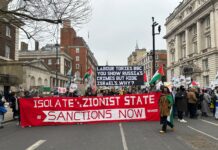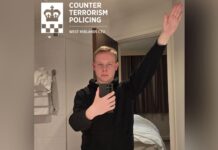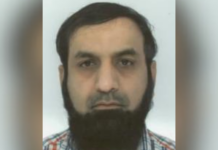Manchester Council of Mosques, which represents over 70 mosques in Manchester with a combined congregation of over 80 000 people, has slammed the government’s counter-extremism strategy which was unveiled earlier this week.
In a strongly-worded statement MCOM said censoring journalists, charity trustees and faith leaders is not the way forward and would result in further Muslim alienation.
They were responding to the Home Secretary’s plans to “systematically confront and challenge extremist ideology” and place new curbs on those who “spread hate”.
Theresa May said radical preachers would be banned from posting material online and anyone with convictions for extremist activity would be barred from working with children. She said deradicalisation classes would be made mandatory for others deemed a threat.
The MCOM statement is yet another indictment of the Prevent strategy from grassroots Muslim organisations who feel that the government has either excluded them from consultations or is not listening to their concerns.
Here is the MCOM statement in full:
An effective strategy to prevent violence needs to address and prioritise the following areas:
Subscribe to our newsletter and stay updated on the latest news and updates from around the Muslim world!
a) To be clear, open and precise on what constitute “terrorism” rather than be based on vague and all encompassing notions around terms like “radicalisation,” “non-violent” or “extremism” which are open to subjective decision making.
b) To be consistently applied to all forms of violence and violent individuals rather than selectively applied to particular individuals and communities.
c) To pursue an “ethical” foreign policy which is marked by promoting human rights over business interests encouraging accountable government not supporting dictatorships.
d) To tackle and take down violent propaganda on the internet from brutal groups and brutal regimes.
e) To have a targeted safeguarding programme where vulnerable individuals are re-educated in their faith and identity, re-engaged as active citizens and re-connected to the real world as opposed to an online “fantasy” world. Any safeguarding programme should work in collaboration and partnership between the vulnerable individual, government and with grass roots community based organisations and individuals.
f) To use existing criminal and terrorism offences within an open criminal justice system.

g) To be careful not to change the essential role of the public sector worker (teachers, nurses etc) or the basic function of regulatory bodies such as OFSTED and the Charity Commission into “policing” non violent extremism one which would adversely and fundamentally change the relationship between citizens and the state.
h) To caution against creating new offences and giving wide powers where there is no evidence they are needed.
Qadir Ahmad Chohan of MCOM states: “The Government’s proposed Counter-Extremism Strategy to tackle so called ‘non-violent’ and ‘violent’ extremist ideology reflects the Government’s disappointing fixed mind-set that to tackle terrorism more powers are needed.
“Repressive powers to censor the media, close down mosques and charities, hunt for ‘extremists’ working in the public sector, sanction educational establishments for allowing so called ‘extremists’ in, ban groups working for changes at home and abroad or place individuals on civil injunctions will not work to make us safer.
“Sadly, should the Government move towards clamping down on religious, charitable and journalistic expression as well as political dissent, then this will only alienate wide swathes of Muslims groups and communities as well as having a chilling effect on the work of journalists, activists, vice chancellors, charitable trustees and faith leaders.
“Let’s put it on record again – Muslims and Mosques have been at the forefront of vocalising opposition to terrorism in all its forms from the pulpit, organised tributes to those who have been the victims of terrorism, continue to fundraise for those who suffer from violent oppression, organise conferences to highlight human rights and anti-Muslim abuses and also encourages active citizenship which works for a more just, tolerant and cohesive society for all.
“Many ordinary and decent Muslims who live and work in and prosper this country will find these announcements worrying”.






















